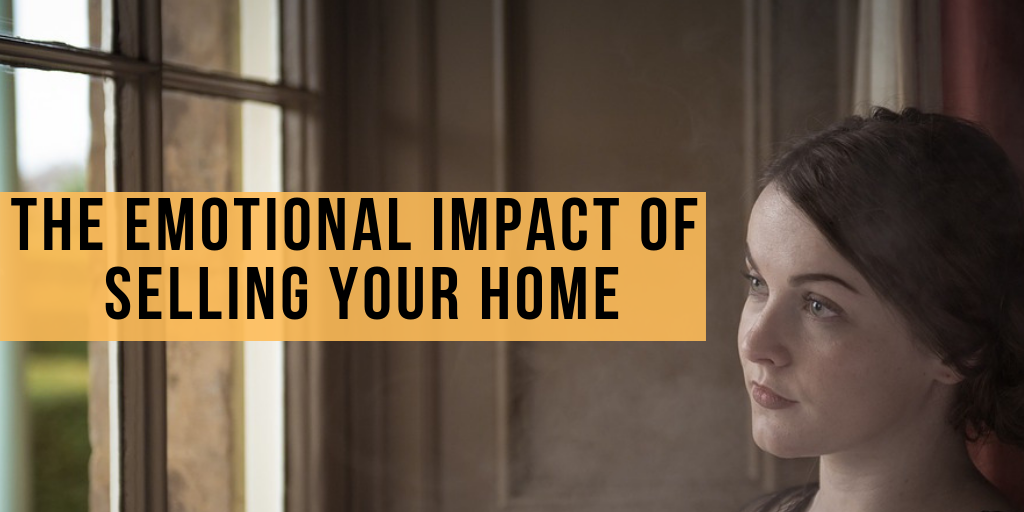
“Home is where the heart is”, goes the saying. And selling a beloved home can feel like years of memories and a neighborhood of friendships have been taken away. If the sale involves a life change, every twist of the process can feel like more salt in the wound.
Courtney Ryan, a policy consultant, sold her New York home in March 2018 because of a divorce. There was a lot of frustration and anger in the process.
“Deadlines came and went, it felt like it would never end,” she says. “What should have been a decently easy sale legally and logistically was unnecessarily complicated.”
Selling your home can be bittersweet if you’re upgrading to a larger home, relocating closer to family or accepting a promising new job — you’re moving on to something better, even as you lose a beloved space. In other instances, the home selling process can be distressing if you’re grieving a major life change or are downsizing.
A growing body of research equates memory to space, according to Scott Huettel, chair of the Department of Psychology and Neuroscience at Duke University, in an article published in The New York Times. Physical space can be tied to memory, and that space where memories have been made can carry more value than any monetary figure, he says. That can also make it hard to let go of that space, especially when it comes in the form of selling a home.
Lauren Hirs, a data scientist, sold her circa-1900 Stratford, Connecticut farmhouse in 2015 to upgrade to a larger home in Fairfield. She gained a larger backyard and walking distance to the elementary school. But she was emotional when it was time to leave the home for the last time.
“You just don’t forget the house you had when your children were newborns,” she says. “But I laugh when I think about things such as the fact that there are probably still pinto beans stuck in the floorboards in a few places from the kids’ sensory bins, and there may or may not be a fake mustache in an air vent.”
Bethany Keeler, a data analyst, sold her home in north Dallas in May 2017 after her divorce.
“I had some nostalgia over leaving the only home my son had ever known, and the only place I’d ever lived more than two years since leaving my mother’s home as a teenager,” she says. “But the biggest emotion was just stress.”
Because showing a home on her own with a small child and pets was overwhelming, Keeler decided to price the home aggressively. She took about a $5,000 hit on profits, but had two offers on the day the house was listed.
“The loss in profits was well worth it to save my sanity,” she says. “I know not everyone has the luxury to take that kind of hit, but as a single parent, I was more than willing to pay for the quick sale.”
Then there’s the fact that you may feel attached to your home because of all the time and work you put into improvements. Perhaps your home feels like an extension of who you are, so selling feels like letting go of a piece of your self-identity. In other cases, financial woes could make downsizing feel like failure, where it’s hard to let go and agree to a deal.
Selling is an emotional grind
The home selling process itself can be an unpredictable and emotional rollercoaster. There are specific parts of the process where emotions are more likely to flare up.
- Deciding the sale price. A home full of memories may have high value to you, and you may want to set a high price. But your price should be valued based on the measurable attributes of the house, not on the number of pinto beans in the floorboards. Remember that beauty is in the eye of the beholder when it comes to a home sale. “Don’t take it personally when people don’t love the house you’re selling,” Hirs says. ” It only takes one person or family liking the home.”
- Prepping for sale. As you begin organizing your belongings and preparing your home for sale, memories you’ve made in each space could flood in. Try to give yourself extra time to prep, so you can pause and reflect when it feels necessary. Ultimately, your goal is to remove personal items and minimize the amount of décor in your home. The idea is that anyone walking through should be able to picture themselves living in the home. This can make your home feel less personal to you during the selling process.
- Engaging with prospective buyers. Buyers may not feel the same way about your house as you do. You might overhear them commenting on the small kitchen. They might share plans to change aspects of the house that you don’t agree with. The reality is that prospective buyers have needs and desires that mean something to them, and are hoping to find a home that fits their criteria.
- Going back and forth on negotiations. Expect negotiations. Even when you have signed a contract, there could be contingencies and reasons why a deal could fall through. There could be a wait of weeks or even months before closing. While the process can be nerve-wracking, it’s helpful to remember that this is what many homeowners go through during the traditional home selling process.
Work with your emotions, rather than against them
While the home selling experience itself can be stressful, it’s possible to have awareness of your emotions during the process so you can embrace them.
- Embrace your feelings. Understand that emotions will fluctuate throughout the process. A buyer backing out or an appraisal causing a roadblock isn’t personal, it’s the process. Hopefully this can help you approach any problems calmly and thoughtfully.
- Identify your personal weak spots. By knowing what’s important to you in the home selling process, you can hopefully work to keep these factors from influencing your decision. For example, you might have an image of the type of family that will move into your home. This could make you biased toward accepting an offer from someone you think will make the most of your home, even if others offer more money, and you don’t really know what they might do once the keys are theirs. Be aware of these emotions and how they might impact your decision to accept or turn down an offer.
- Be patient. Selling a home the traditional way can take weeks, months or longer. Even if you have a contract, things like appraisals and mortgage lending can get in the way. It’s very common for emotions like frustration and worry to surface throughout the journey, especially if it’s lengthy. “Anticipate that everything will take two to three times longer than they say,” Ryan says.
Final thoughts
As hard as it might be to sell your home, your next stop will also become a home—filled with laughter, good times and sweet memories. Ryan lives in the country now, and has to drive 45 minutes to work, a much longer commute.
But “the peace, nature and sunsets are all worth it,” she says. “I think the biggest happy surprise that came with the new place is how the calm at home has rippled though my life, ” she explains. “I can see the stars every single night there isn’t cloud cover, and I have some gorgeous wildlife we share the property with.”
Selling a home is one of the biggest financial and emotional decisions you’ll make. By knowing how emotions affect your decision-making, you can make the best choice for your family in how you want to sell your home.
Author: Renee Morad
Originally Posted On: https://www.opendoor.com

Thanks, Deb Rhodes
Look me up on Twitter @ckhomes4sale